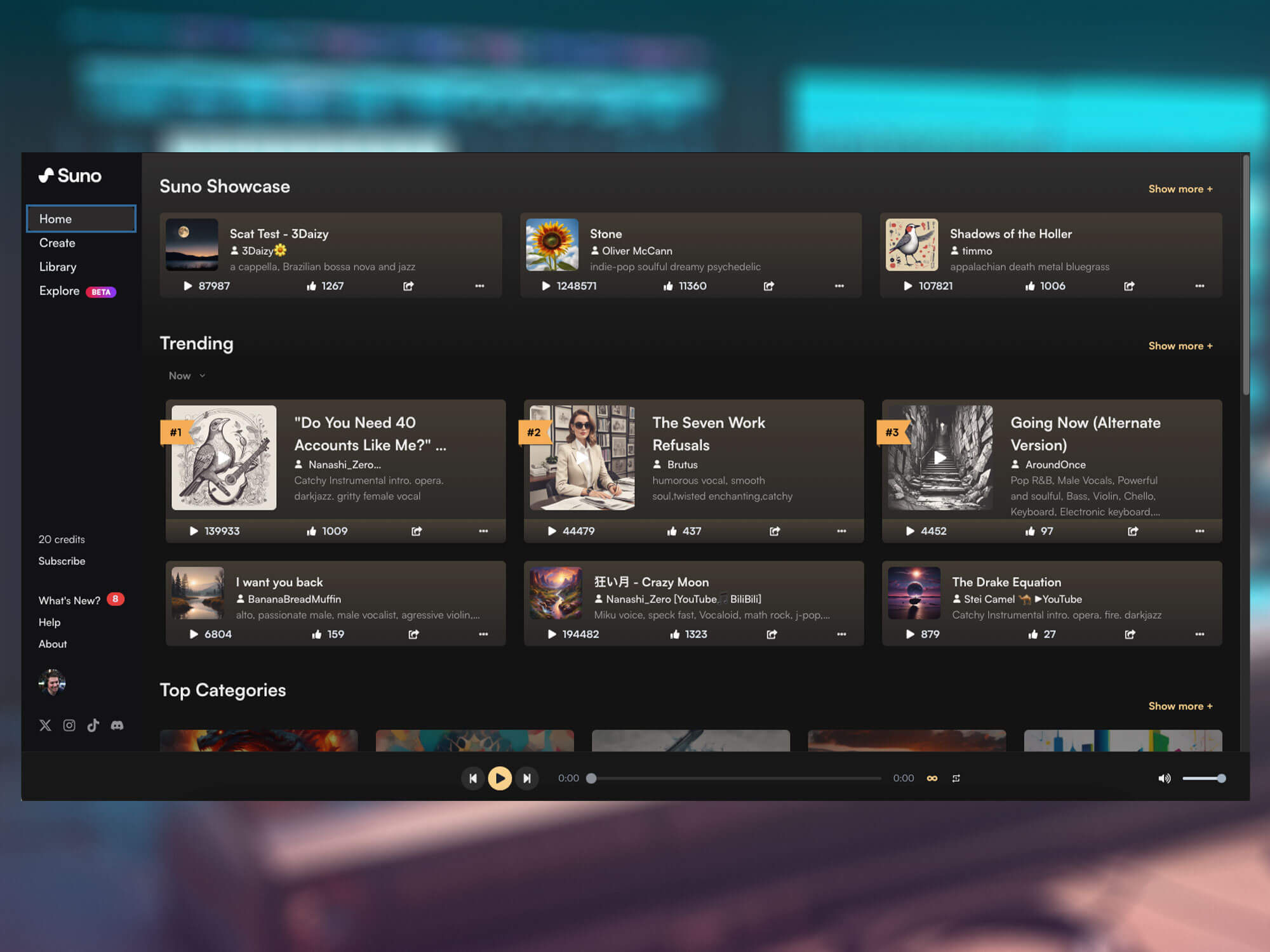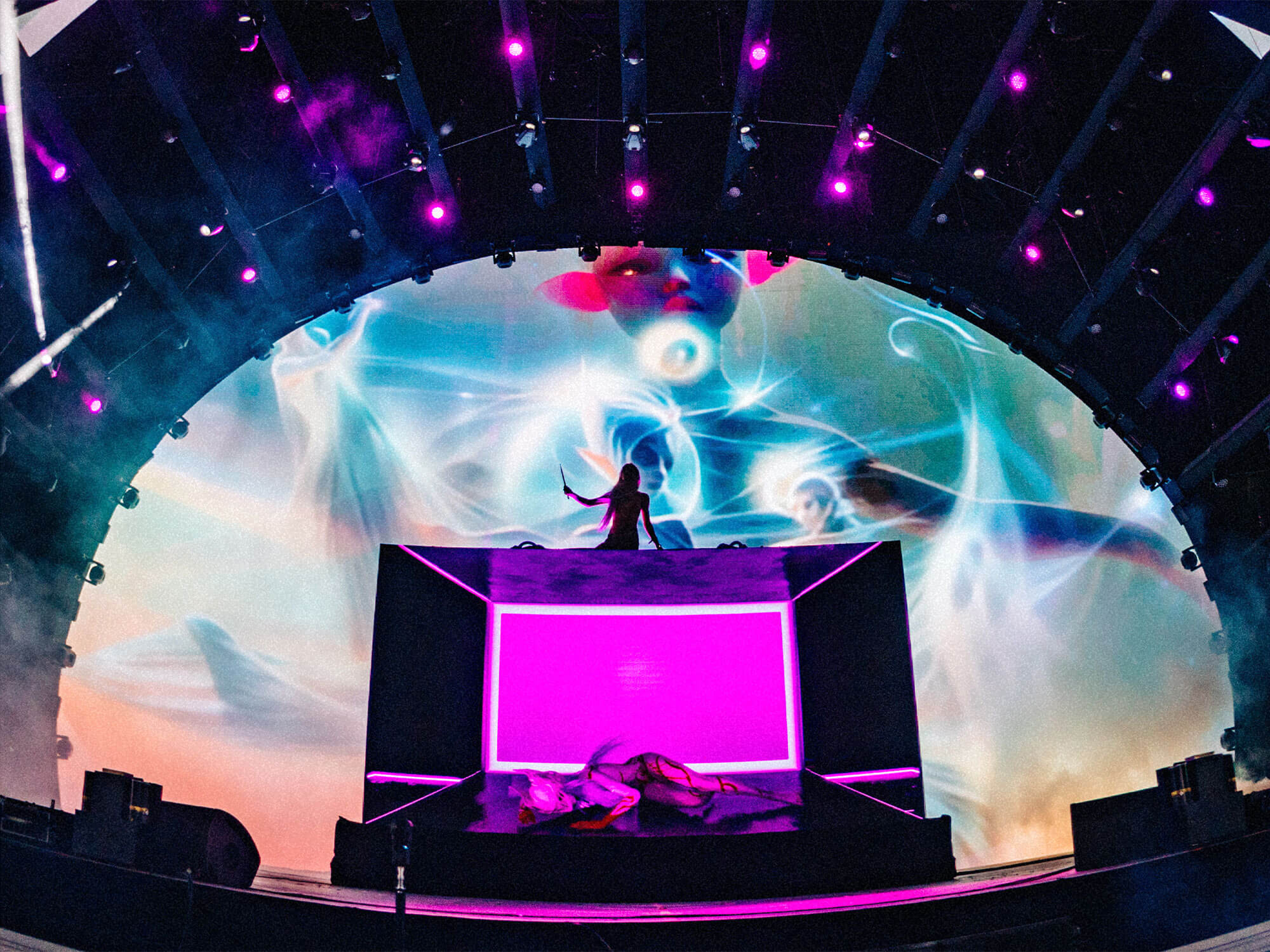If you’ve been following the headlines, 2024 was an exciting, eventful, and often anxious year in music. From AI and legal controversies to innovative new instruments and festival blunders, this year really brought us more than we bargained for.
In case you missed what went down, this list will catch you up on some of the most interesting, divisive, and entertaining news stories we covered this year.
Telepathic Instruments
One of the biggest developments this year in the music tech community was the launch of Telepathic Instruments and the fledgling company’s first product, the Orchid. With Kevin Parker of Tame Impala as one of its founders and Tom Cosm as its technical director, Telepathic promises to be a manufacturer with a “by artists for artists” philosophy.
This is certainly evident in the Lo-Fi branding aesthetic and the creative versatility we’ve seen so far in the video demonstrations of the Orchid. In case you’re wondering, the Orchid is a compact 16-voice digital synth with a single-octave keyboard. The idea behind the Orchid came to Kevin over 10 years ago, bringing a new approach to chord generation.
The first 1000 units of the Orchid go on sale from 18th December, directly from the Telepathic Instruments home page.
Read more about the Telepathic Instruments Orchid here.
The US Election and Music Tech

With this year being an election year, we saw an unprecedented amount of campaign coverage on YouTube and Spotify, where candidates were platformed by some of the biggest podcasts globally including The Joe Rogan Experience and Call Her Daddy. Whether this held much sway in the polls is another matter.
However, what was surprising was how little pushback and critical dialogue there was from interviewers like Joe Rogan, Theo Von, and Alex Cooper who let the candidates control their respective narratives completely. Conversely, entertainment figures in music picked and chose their allegiances explicitly, with artists like DJ Snake and Beyoncé preventing their music from being used by one candidate or the other.
Read more about the music used illegally by US Election candidates here.
Drake vs Kendrick

If you’re a music fan and you were on social media platforms at any point this year, chances are you would have heard about the unavoidable tale of the Drake vs Kendrick beef. In May, the long-standing online animosity between the two artists came to a head with the release of Kendrick Lamar’s Not Like Us, which is now nearing a billion streams on global platforms.
Drake’s response to this was to sue his (and Kendrick’s) label UMG and Spotify, claiming that the companies colluded to purposefully push the viral diss track in an allegedly elaborate illegal scheme to sabotage his brand as an artist. From using Bots to cutting royalty rates, all of Drake’s lofty claims filed in the lawsuit have so far been denied by UMG, so we can only watch it unfold.
Get the details on Drake’s allegations against UMG and Spotify here.
UMG vs TuneCore (Believe)

Of course, this wasn’t the first time UMG was in the headlines this year. After pulling its entire catalogue from TikTok, the label eventually settled its dispute with the popular short video platform in early May after finally coming to a mutually beneficial agreement regarding licensing.
Meanwhile, just last month, UMG, as well as ABKCO Music & Records and Concord Music Group filed a lawsuit against the music distributor TuneCore and its parent organization Believe for alleged broadscale copyright infringement. According to the filings TuneCore is said to be involved in the distribution of fraudulent remixes of major artists, as well as manipulating the Content ID system on YouTube.
Read more about UMG vs TuneCore here.
Rick Rubin on Creativity

Back in 2023, multi-platinum-selling producer Rick Rubin launched a book entitled The Creative Act: A Way of Being. As a disciple of the creative process, Rubin often appears on podcasts, both as a guest and an interviewer on his own Tetragrammaton series. Because he speaks on the subject so often, Rubin has become a target in the media for artists who in one way or another disagree with his views.
One such commenter was award-winning artist and producer Jacob Collier who strongly disagreed with many of Rubin’s statements surrounding what constitutes “pure art” and its creation process. More recently, Pete Townsend of The Who also spoke out on the Rockonteurs with Gary Kemp and Guy Pratt podcast, regarding some of Rubin’s views as contradictory or even hypocritical. Although he never intended to come across as an authority on creativity, it seems many of Rubin’s statements were simply taken out of context.
Manoeuvres from Moog Music

This year was a busy one for Moog Music with a range of new hardware synths to increase your gear acquisition syndrome. For starters, the manufacturer expanded the Moog Studio line with two new 60 HP modules. This includes the Spectravox 10-band vocoder and the Labyrinth generative synthesizer, both equipped with extensive patching matrices for creative sonic exploration.
However, the headliner was the impressive Moog Muse, a 61-key 8-voice dual-layer analogue synth with amazing sound-shaping capabilities and all the bells and whistles you’d expect with its $3000 price tag. From built-in effects and a programmable macro control to a 64-step pattern sequencer, the Muse has all the hallmarks to make it that aspirational piece of gear worth saving up for.
Check out the Moog Muse review here.
The Generative AI Saga

One of the most controversial topics on the internet this year in music production circles and among fans was generative AI. When Roland and UMG joined forces to create a manifesto outlining the principles for using AI technology in music creation, most of the major music industry players and music tech companies co-signed the list of guidelines in support.
As positive as this was, in an almost inevitable turn of events, Sony, UMG, and Warner subsequently sued the generative AI music platforms Udio and Suno for widespread copyright infringement. Led by RIAA, the plaintiffs claimed that the AI platforms used technology modelled upon popular songs, seeking damages of up to $150,000 per instance.
Find out more about the Generative AI Lawsuit here.
A Big Year for Teenagers

2024 was a big year for the cult Swedish tech manufacturer, Teenage Engineering. From design collaborations like the Rabbit R1 to being featured at the Art Of Noise exhibition in San Fransisco, the brand covers plenty of ground. With the EP–1320 Medieval, the company showed it certainly has no qualms about doing something completely leftfield for fans.
However, the main event for Teenage Engineering this year was undoubtedly the release of the new OP-XY portable performance synthesizer. With an array of synth engines and effects, sampling capabilities, and a 16-track sequencer, the OP-XY promises endless hours of fun. Will it stand up to the hype previously generated by the OP-1? Only time will tell.
Find out more about Teenage Engineering here.
Grimes’ Coachella Catastrophe

One of the year’s most confusing moments for Grimes and her fans was when she took the stage at Coachella for her highly anticipated DJ set. To say that things did not go smoothly for the indie electro-pop queen would be an understatement. From around the 20-minute mark onward the transitions between songs became intermittent with some tracks playing at double their original tempo.
Although she explained to the crowd over the mic that she was experiencing technical difficulties, she continued to plow through her set claiming partial responsibility for the blunder. Apparently, the Rekordbox analysis of her tracks had bugged out, resulting in most of them reading at double speed (with the tempo sync active) in the CDJs which threw her off completely. Overall, this type of drama is completely on-brand for Grimes, and probably endeared her to her fans even more.
Read more about Grimes’ Coachella performance here.
Fred… Again?

This year was also a massive year for electronic music artist Fred Again, who did his first sold-out stadium show at the 77,500-capacity Los Angeles Memorial Coliseum stadium. Shows of this magnitude at the Coliseum are historically associated with acts like Pink Floyd or Metallica, so it certainly shows us exactly how far EDM has come as a cultural phenomenon.
From inventive stage design that created a more engaging experience for fans to a sound system that used a circular arrangement with 68 triple 21-inch cardioid subwoofers, you can be sure that the show was a night to remember. Hopefully, we can look forward to more exciting performances from Fred again and other artists of his ilk in 2025.

